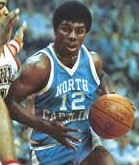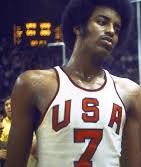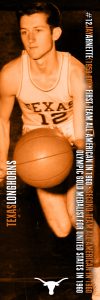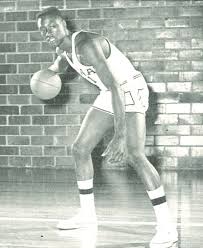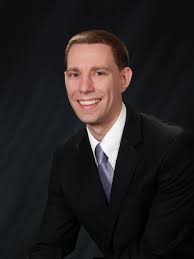The NBA Finals date back to 1947 (when they were known as the Basketball Association of America Finals) and the very 1st NCAA tourney was held in 1939. Olympic basketball competition is even older: it debuted as a demonstration event in 1904 and the men’s version became a medal sport in 1936, with the women finally getting their chance to go for the gold in 1976. The United States has dominated Olympic basketball competition from the start: the men have won 15 gold medals in the 18 tournaments they have participated in during the past 84 years, while the women have won 8 gold medals in the 10 tournaments in which they have competed during the past 44 years. Those of you who were looking forward to the 2020 Olympics opening ceremonies in Tokyo on July 24, 2020 will have to wait an extra 364 days, as the coronavirus caused a postponement until July 23, 2021. Due to the absence of college basketball since mid-March, HoopsHD’s Jon Teitel decided to fill the void by trying to interview as many prior Olympic players/coaches as possible so that you have something to read this summer while not watching the Summer Games. We continue our coverage by chatting with Phil Ford about winning a gold medal in 1976 and being named national POY in 1978.
You were born/raised in North Carolina and were named 1st-team Parade All-American in 1974: which of your fellow honorees impressed you the most (Kenny Carr/Moses Malone/Mike Mitchell/other)? I was born in Kannapolis: my parents were public school teachers and we moved to Rocky Mount after my dad got a job nearby. I was impressed with all of my fellow honorees. There was a guy named Skip Wise who was a great player from Baltimore and was 1st-team All-ACC at Clemson before going pro early in 1975.
You were named to the ACC All-Tourney team for 4 straight years and in 1975 you were named ACC tourney MVP as a freshman after 3 close wins in 3 days (1-PT OT win over Wake Forest/5-PT OT win over Clemson/4-PT win over NC State): how were you able to play your best when it mattered the most? That year was a total team effort. We lost 2 games early in the season during a holiday tournament but by the end of the year we were good enough to win the ACC tourney. Skip missed a shot for Clemson and Tree Rollins got the offensive REB but he missed the put-back, then to beat arguably 1 of the best players in league history in David Thompson in the title game was a great win for our school. Had I not gone to UNC I would have went to NC State.
You played for Coach Dean Smith/Coach Bill Guthridge and with 3 of your Tar Heel teammates (Walter Davis/Mitch Kupchak/Tom LaGarde) on team USA at the 1976 Olympics: was it extra-special to have all of those Tar Heels on the national team? What Coach Smith tried to do was to put together a team that was coachable because you do not have a lot of time to prepare against foreign teams that had played together for years. We were very young college kids who were facing grown men who were playing in their 2nd or 3rd Olympics. Having 4 of us on the team was helpful.
You were a 3-time 1st-team All-American/1978 national POY: what did it mean to you to receive such outstanding honors? It was very rewarding but I did not have individual awards as my goals because it is a team sport. I tell younger guys like Joel Berry that if they give me their NCAA title then I will gladly give them my jersey from the rafters!
In 1978 you graduated as the all-time leading scorer in school history with 2290 career PTS: what is the secret to being a great scorer, and how did you feel when Tyler Hansbrough broke your record 30 years later? It was not a goal of mine: I just got better and better as a player and picked the right school for me. Playing for Coach Smith was the best thing that I could have done as a player. I was so happy when Tyler broke my record: nobody has won as many awards as has and he is a great friend. I got to attend the game where he broke the record, which was really cool. Coach Roy Williams invited me to be his guest and I got to go out and give Tyler a big hug after he did it.
In the summer of 1978 you were drafted 2nd overall by Kansas City (4 spots ahead of Larry Bird): did you see that as a validation of your college career, or the realization of a lifelong dream of reaching the NBA, or other? It was a great feeling to be drafted 2nd. Growing up in Rocky Mount we did not see a lot of professional basketball players. I became a UNC fan in junior high school when Charlie Scott enrolled there so it was unbelievable to have an opportunity to follow him to Chapel Hill.
You averaged 15.9 PPG/8.6 APG/2.2 SPG in 1979 and were named 1979 NBA ROY: how were you able to make such a smooth transition from college to the NBA? A lot of people think of the 4 Corners offense when you mention UNC but we really played an up-tempo pro-style of game and a lot of man-to-man defense. You have to learn how to play with 4 good teammates: we did not have anyone taking 30 shots/game because we spread our scoring around. My college/Olympic teammate Walter Davis was NBA ROY in 1978.
After retiring as a player you returned to your alma mater as an assistant coach and helped lead the team to the 1993 NCAA title: how did you like being a coach, and what did it mean to you to win a title as a coach (thanks to Chris Webber calling a timeout that he did not have in the final seconds) after coming so close as a player in 1977? It was a great time in my life: the enthusiasm/interest for Tar Heel basketball is off the charts. I was just happy to be a part of that title since we had such a great team with guys like Donald Williams/Eric Montross.
In 2003 you were voted the 9th-Greatest Male Athlete in ACC history and in 2012 you were inducted into the College Basketball Hall of Fame: when people look back on your career, how do you want to be remembered the most? Believe it or not I would just like to be remembered as a nice guy. Basketball was an important part of my life but my faith is also important, as is the way that I treat people.
Are there any thoughts you would like to share about everything that has been going on in our country this year (George Floyd/protests/police/other)? I love the dialogue that is going on and hopefully it just involves some growing pains since we are a young country. Every day is a gift from God and we have a chance to improve the lives of our fellow man. I will continue to pray for humanity and all of its internal relationships and I hope that we grow closer and closer together.

